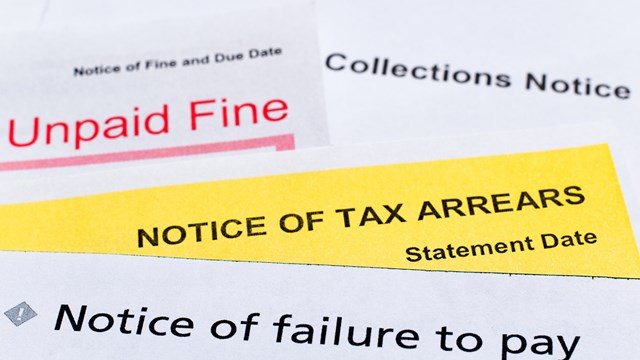When realtor Sean Carroll went out looking at homes with a prospective buyer not so many months ago, it didn't take long to find a property that fit exactly what the buyer was looking for. When Carroll put his client's offer in however, he was told by the listing agent it was a “distressed property,” known in real estate parlance these days as a short sale.
“I had no idea how that was going to affect the transaction,” says Carroll, team leader and realtor for Team Carroll at RE/Max Classic Group in Berkeley Heights. “I had never encountered a situation like that before, but at the time the data was suggesting that the prices were starting to fall, and that there were going to be more of these types of sales.”
In the early days of the recession, many real estate industry professionals like Carroll had never seen the likes of a market like this, and were truly unfamiliar with how to navigate it. As the economic crisis has deepened and more residential buildings have slid into financial disarray, real estate agents and property managers alike are learning everything they can about managing, buying and selling distressed properties.
What exactly defines a distressed property depends on who you ask, and what sector of the industry they work in. To Carroll, it means several things. “It means it’s already owned by the bank, and it’s been foreclosed on,” he says. “The lenders are taking it back from the owner, or the property is on the market for sale and it’s listed as a short sale.”
“Everything today in any residential category is in a state of distress,” says Jon Gollinger, a 35-year industry veteran and founder and CEO of Accelerated Marketing Partners, LLC in Boston, “and it’s not going away anytime soon. In 2006, I said this was a two-year problem, but now there are 20,000 units that sit empty in Miami, 8,000 in Atlanta and 20,000 in New York City. When the industry was healthy, these units would sell out in two to three weekends. Not anymore. Many brokers never saw a down cycle like this, so they don’t understand how to work in this climate."
For property managers, “distressed” means more that an association or building's reserve funds have dwindled to the point where improvement projects—and sometimes even more basic maintenance work—must be scaled back or postponed. Generally, the shortfall is due to residents not paying their monthly fees, compounded with the board's unwillingness to levy assessments when so many are dealing with unemployment and other Recession-related hardship. The situation can quickly snowball, leaving a building in bleak financial straits and its manager with a mess on his or her hands.
Some Things Stay the Same
And it's not just brokers and developers who are feeling the effects of a changed landscape—property managers are dealing with it as well, though perhaps in different ways. Bonnie Bertan of Association Advisors in Freehold, says that while the financial situation of many HOAs and owners may have changed drastically, at the core, the duties and responsibilities of managing a building or association remain largely the same.
“Regardless of circumstances, the board and managing agent have a fiduciary duty to the association,” says Bertan. “Most distressed communities become that way because over time, the association's reserves have not been properly funded. As the community ages, the repair and replacement of [worn-out elements] becomes more expensive. Board members are volunteers, and are often not comfortable having to make the hard decision to collect monies from neighbors who have defaulted on their maintenance fees, and most owners don't get involved with their association until it affects their pocketbook.”
And often, when a development begins to slide into disrepair, or projects slated to begin are put off, residents become resentful—which complicates an already tough situation. One of many challenges in managing a distressed or struggling HOA, Bertan continues, “is getting the residents to understand why they are paying fees, yet not seeing the benefit of those fees. It's a challenge to help owners understand that certain maintenance projects can't be done because the funding isn't there – and to explain why it's necessary for them to pay higher fees and still live in a distressed community.”
In these cases, management experts stress that individual property managers must take an active role in establishing—and consistently enforcing—a clear and concise collections policy. “Once the policy is established, the manager can work with the association's lawyer to pursue necessary collections without emotionally burdening the board members,” says Bertan, adding that “in certain temporary circumstances, payment plans can be accepted, but for the most part, the funds need to be pursued to avoid homeowners having to pay for owners who are not paying. The budget is based on each owner paying his or her fair share.”
“Bottom line,” says Bertan, “A manager needs to manage. Board members rely on their manager for guidance and professional advice. The manager should take the initiative to develop the long-term strategy to restore the community. Issues should be identified and prioritized in order of urgency, and the manager should have a plan to address each issue with a tentative time line. When a manager takes this kind of initiative, it makes it easy for the board to approve and for the plan to be initiated.”
Learning New Skills
Of course, brokers aren't born knowing how to present and sell troubled properties, and managers don't wake up one morning knowing exactly how to shepherd boards through the financial weeds. To help fill the gaps and give real estate professionals more tools to do their jobs and assist their clients, several trade organizations are now offering courses in handling distressed properties.
Once Carroll recognized the change in the market, he says he knew that he needed to know more about distressed properties in order to keep current – and keep his business afloat. “I love to read and attend sales courses,” he says, “so I went and got trained.” Carroll took courses through the Distressed Property Institute (www.distressedproperty institute.com) and earned certification as a Certified Distressed Property Expert (CDPE). “I learned everything I could about distressed properties and brought it into my business.”
In 2006, when the market started to decline, the Real Estate Buyers Agent Council (REBAC) of the National Association of Realtors also launched a foreclosure course to help real estate professionals understand the changing market. Since then, they have revised it and answered a growing demand for additional education.
“It was terrifically successful,” says NAR Managing Director Kristen Short of the course's reception. “The 2006 course focused on foreclosure opportunities, and we've modified it since then to reflect the changes in the marketplace, and include the buyer’s side of the transaction.”
Over the past three years, more than 10,000 NAR members across the country have taken the Short Sales and Foreclosure (SFR) certification program. To earn the SFR certification, realtors must complete a one-day education program, either in-person or online, as well as three one-hour “webinars.” The program's core curriculum includes training on how to manage short sales, foreclosure, and real estate-owned transactions, and provides resources to help practitioners stay current on national and state-specific information as the market for distressed properties evolves.
Short cautions those who take the course against thinking the courses alone will make them a seasoned expert, however. “In this day and age, it’s dangerous to call yourself a Ph.D in these types of transactions,” says Short. “A one-day class and a suite of Webinars are going to allow you to be a resource for your clients—not an expert.”
There are other opportunities for property management and real estate experts to take courses. The Distressed Property Institute also provides opportunities for agents to learn bow best to assist homeowners in distress. The Real Estate Board of New York (rebny.com) also offers a Certified Distressed Property Expert course (CDPE).
Learn As You Go
For agents and managers new enough to the industry to have missed the last major recession in the 1980s, focusing on this part of the business is not something they've ever had to do before.
For others, it's a matter of adding another facet to an already-mature business or career path. Bill Flagg, president of the Greater Union County Association of Realtors, has been in the business for 27 years, and says that when he first started, there really wasn’t a specific process for handling distressed properties the way there is today. “Nobody tried to be an expert at it before,” he says.
Flagg says he became a real-estate owned foreclosure specialist back when his son was young so he could “work on banker’s hours.” “But you really have to have the capital if you want to specialize in it,” he continues. “You have to deal with repairs and so forth.”
For his part, Gollinger says he isn’t sure that a course can teach what real estate and property management professionals really need to know to succeed in the industry. “This isn’t book learned,” he says. “You have to navigate it through.”
Doing some of that navigation himself, Carroll says he does what he can to keep up-to-date. “I am on at least two 90-minute Web or conference calls per month, and what we’re doing is sharing information with other distressed prop experts,” he says. “The government guidelines are changing daily and there are so many new things—we have to stay on top of it.”
When it comes to most business related situations, on-the-job training may be the best teacher. Who knows how long a situation like this is going to last, but like a good doctor who gets additional training when new procedures come out, real estate salespersons and property managers are taking the initiative so they can be qualified and knowledgeable to help their clients.
“A manager needs to be honest with the residents of the community, knowledgeable in their profession, and confident in their ability to manage. Struggling boards and communities want help—they wan to know that the community is being managed as if it were the manager's own home. Caring about residents and educating them by keeping them informed is the key.”
Lisa Iannucci is a freelance writer, author and a frequent contributor toThe New Jersey Cooperator.







Leave a Comment